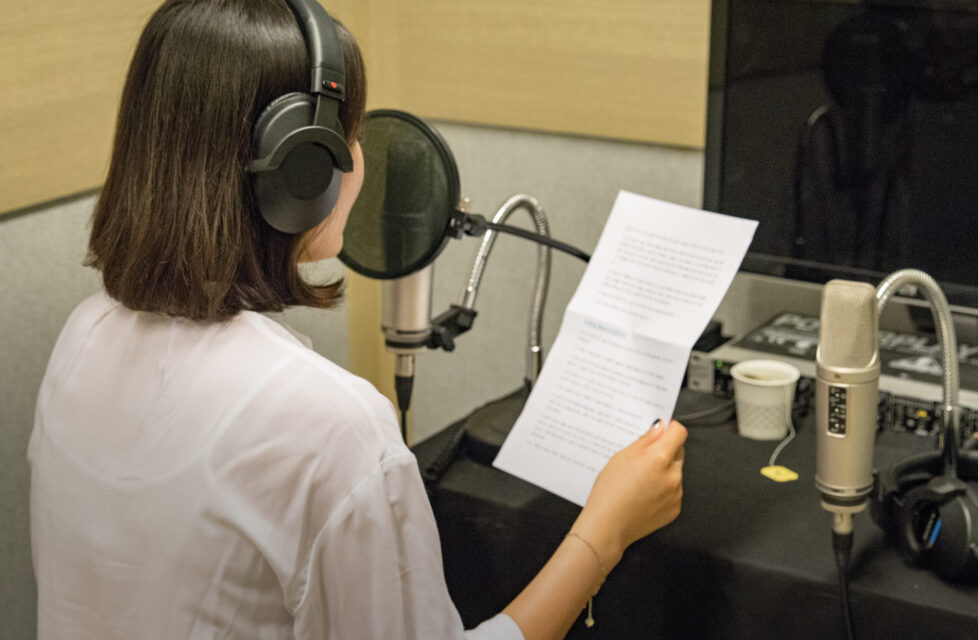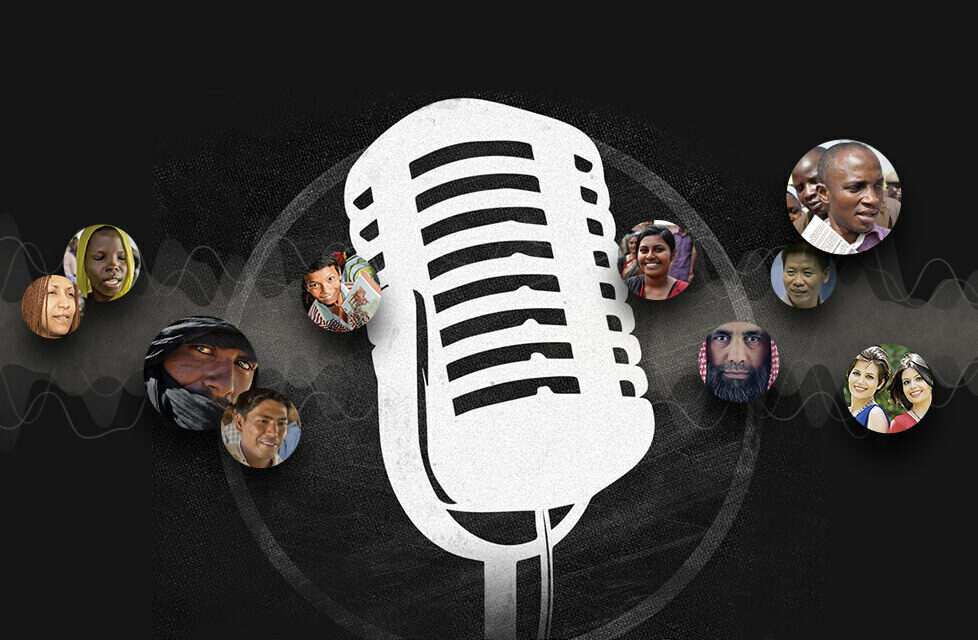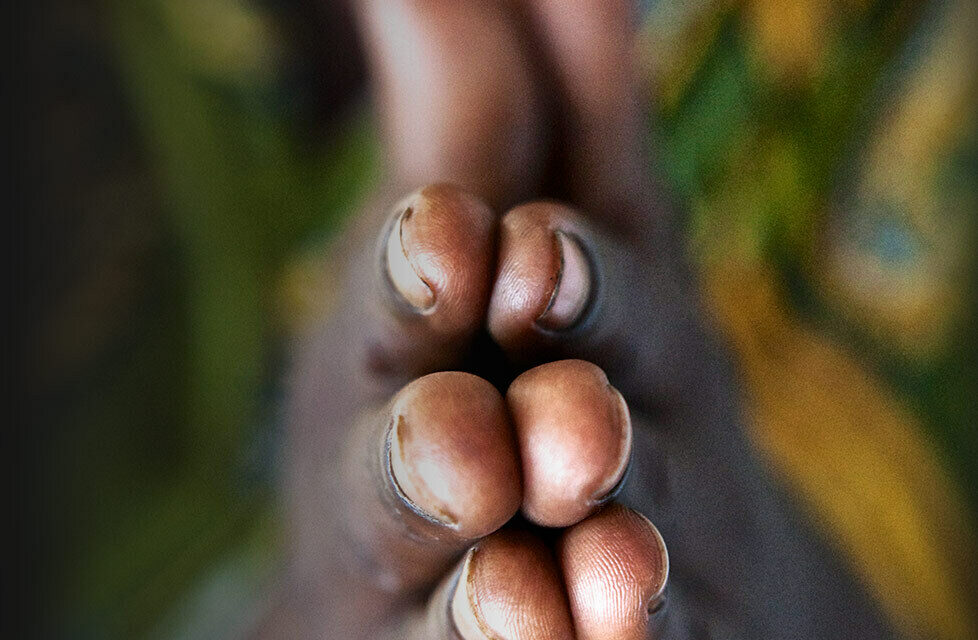The young woman settled into her seat in front of a microphone in a closet-sized studio. Hannah skimmed the script, took a breath, and began to read. Once an eager listener on the other side of the broadcast, Hannah is now a familiar voice of forbidden Christian programming that is broadcast into North Korea. When Hannah was a child in North Korea, she spent nearly every night huddled next to the radio with her father. “It was illegal to listen to the radio, but we did it in secret,” Hannah said. Though forbidden, her father managed to purchase one so they could tune in to South Korean radio stations. Even today, the North Korean government attempts to “jam” outside signals and confiscate illegal radios. Citizens caught with one are arrested. Her father was cautious, warning the family to keep their radio a secret. They waited until after midnight, when all the neighbors were asleep, to listen to it. When they did, they heard about a world that was completely different from the one described by their North Korean leaders and by Hannah’s teachers at school. She had a strong relationship with her father, and they often discussed what they heard
Read MoreAustralian John Short was detained inside North Korea after leaving gospel tracts near a Buddhist temple. He was facing years in prison—but he wasn’t afraid. “Fear and faith cannot exist within my heart at the same time,” he says. In this second part of our conversation with Mr. Short, he shares how he prayed—out loud—throughout his captivity, how his captors responded to his faith and how his “letter of confession” and eventual release came about. He’ll also share how, upon landing back in China, he learned for the first time that his captivity was international news. He was deeply moved to learn that Christians in many nations were praying for him during his trial, including a group of Chinese house churches that prayed around the clock during his detention. Finally, Mr. Short shares specific ways we can pray for the “hermit kingdom” of North Korea. You can hear John’s wife, Karen, share her side of the story in this episode of VOM Radio.
Read MoreBecause of the recent surge of deaths due to coronavirus in India, Sandeep knew of the desperate needs of people living in surrounding villages. Risking his own health, he traveled to a remote village where people hadn’t eaten in three days and provided them with food and other necessities.
Read MoreMany believers from inside Somalia are fleeing to Uganda, and this has created a unique discipleship opportunity as they seek to establish their lives in their new country. These believers are participating in a discipleship training school where they are intentionally learning about God and growing in their Christian faith.
Read MoreThe Union Church of Tripoli, one of five Christian denominations recognized by the Libyan government, has worshiped in the same church building for over fifty years. The building was rented from the former governmental regime on land that the government had expropriated because of its proximity to the seat of government.
Read MoreAustralian John Short was detained in North Korea. He was repeatedly interrogated. He was forced to write a “confession” of his “crimes,” including the offense of wanting more North Koreans to follow Jesus. But if God asked him today, Short would happily go back to the "Hermit Kingdom." Short shares with VOM Radio how God strengthened him during his captivity, Scriptures and earthly examples of persecuted Christians that most encouraged him, and how he managed to take a measure of control back from his captors — and even make them nervous. Mr. Short agreed to only two media interviews after his release; one with his hometown newspaper back in Australia, and the other with The Voice of the Martyrs Radio. Hear the rest of the story when you listen also to our interview with Short’s wife, Karen. Never miss an episode of VOM Radio! Subscribe to the podcast.
Read MorePersecution during the Reformation The term Anabaptist means “rebaptizer” and was used by criticsof these sixteenth-century radical reformers. The Anabaptistsbelieved the Bible taught “believer’s baptism,” while the churchfollowed infant baptism. They did not think of themselves as rebaptizinganyone, since the first baptism done to infants, they believed, was illegitimate. The Anabaptists simply called themselves “believers” or “brethren” or “Christians.” These reformers did not form a communion orchurch, such as the Lutherans, but were rather a collection of differentmovements, which today range from the Amish, Hutterites, and Mennonites (who trace from Menno Simons) to English Baptists, and in the most general sense to all who restrict baptism to adult believers. Moreover, some Christians in the first centuries followed this practice, yet theAnabaptist movement has its origins in the Reformation. In Zurich in 1525, three men—Conrad Grebel, Felix Manz, andGeorge Blaurock—met to continue the reforms they believed had stalledin compromises made by Martin Luther and Ulrich Zwingli. Grebel andcompany wanted nothing to do with an established church and its half-hearted followers. For them, a commitment to follow Christ was totaland meant not only belief but also practice. The sign of one’s joiningChrist’s church was baptism, which only adults could receive. Theseradicals therefore
Read MoreAnifa is 19 years old and came to faith in Christ earlier this year. She had been suffering from seizures and received healing through prayer at a Christian church in Arua. Her mother, a radical Muslim, became enraged at her daughter’s conversion and threw her out of their home.
Read MoreAfter Mannan left Islam to follow Jesus Christ, area Islamic leaders called for villagers to ostracize his relatives, even telling local vendors to deny them food. As animosity toward Mannan and his relatives grew, the Islamic leaders and angry Muslim villagers called for police to arrest him and his relatives, falsely accusing them of causing trouble.
Read MoreNadia is a Christian who was concerned about her roommate’s health. Her roommate had been involved in occult and voodoo practices, and she was experiencing anxiety and feelings of hopelessness. Nadia shared her concerns with a few other believers, and they began to pray for the roommate.
Read More



